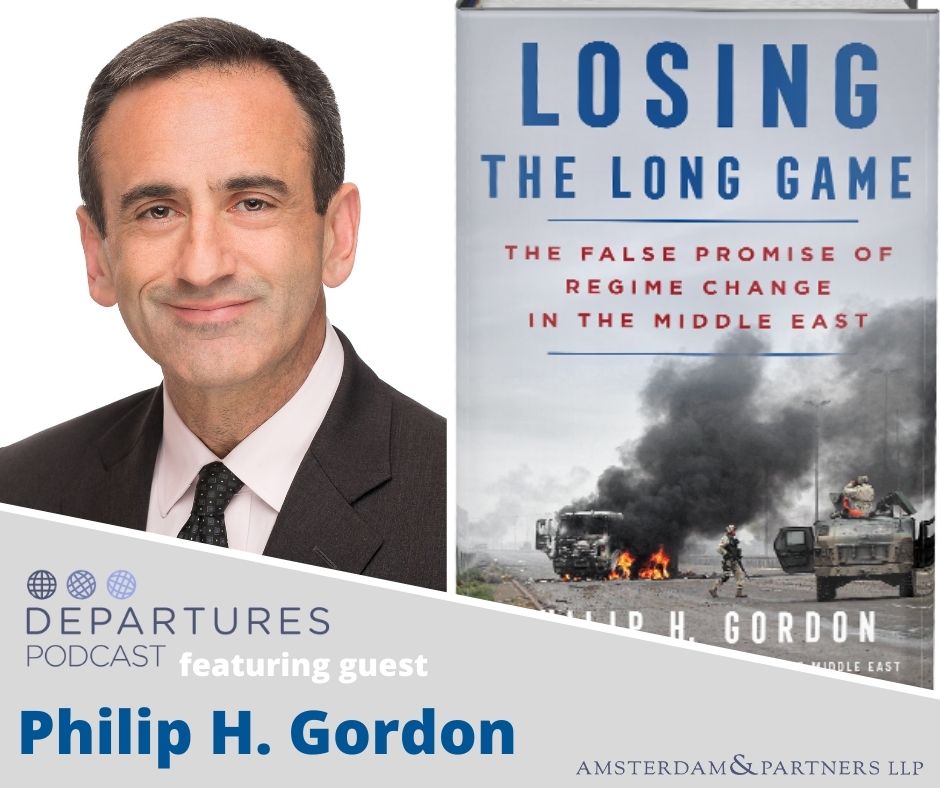Departures Podcast with Philip Gordon

For the past 70 years, the United States has toyed with interventionism in the Middle East on numerous occasions, from Iran to Afghanistan (twice), Iraq, Egypt, Libya, and Syria, among others. And yet, despite the consistently disastrous consequences of these efforts, the same policies continue to attract support, as US decision-makers consistently underestimate the costs and fail to learn the lessons of the past.
Dr. Philip H. Gordon, a former diplomat and a Senior Fellow at the Council on Foreign Relations, joins the podcast this week to discuss his excellent new book, “Losing the Long Game: The False Promise of Regime Change in the Middle East.”
Although one can sympathize with those suffering under a brutal, tyrannical regime engaged in atrocities, there seems to be a common failure to grasp that when you remove a regime, a security vacuum is opened up where chaos thrives, which is very hard to fill.
“The costs are almost always much higher than anticipated, and there are always many unintended consequences. And that’s the history I think we need to keep in mind as we think about it today,” Dr. Gordon says. “This is not history for history’s sake. This is an active agenda item [as the Trump administration has discussed pursuing regime change in Iran]. Before we do that, we should really think about how we’ve done it in the past, why we’ve done it in the past and how it worked out. So maybe we can avoid some of those mistakes in the future.”
Instead, Dr. Gordon argues, diplomacy, deterrence, and engagement are much more effective tools to achieve positive outcomes for US interests in the regime. Sanctions, he says, have a limited use in US foreign policy only for specific purposes – however that’s often not how we see them used. In the case of the Iran nuclear deal, sanctions were effective because they were broadly implemented internationally and made the negotiation possible.
When the goal of sanctions is regime change, Gordon says, it never works. Massive sanctions for decades on Cuba, North Korea, without a specific goal short of regime change, it has been a total failure.
“What I’m opposed to when it comes to sanctions is this fantasy that if you just squeeze hard enough, the regime will actually go away. Most of these regimes, especially the most brutal ones, are willing to see the population suffer infinitely before they’re willing to turn over power to someone else,” Gordon says.











